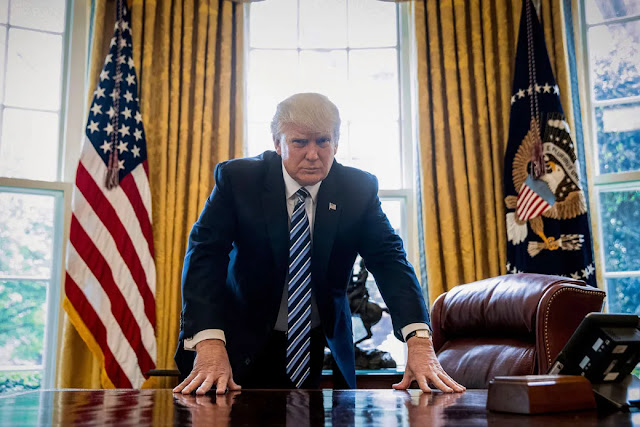 |
| Should Americans Be Worried About Donald Trump’s Mental Health? |
Should the American public be concerned about Donald Trump’s mental health?
What was once considered political speculation is now a serious public discussion. From erratic statements to combative behavior and a growing detachment from reality, many psychologists, political analysts, and even former allies are sounding the alarm.
Trump’s recent speeches and social media posts have grown increasingly disjointed, inflammatory, and conspiratorial. He frequently:
Revives long-debunked lies about the 2020 election
References "revenge" politics against perceived enemies
Makes confusing or incoherent remarks, such as confusing people or places, or misrepresenting basic facts
Such behavior is not typical of someone who aspires to hold the world’s most powerful office—and raises serious concerns about cognitive decline or instability.
In 2017, over 30 psychiatrists and mental health experts published the book “The Dangerous Case of Donald Trump”, warning that he exhibited signs of narcissistic personality disorder, sociopathy, and paranoia.
Although the Goldwater Rule discourages diagnosing public figures without personal evaluation, patterns of behavior—including pathological lying, lack of empathy, delusional thinking, and emotional volatility—have been consistently flagged.
Their collective message: Trump represents a “clear and present danger” to democratic stability due to mental unfitness.
In recent months, Trump has openly promised to use a second term to "go after" his political enemies, purge government institutions, and install loyalists who will “fight” for him. He speaks of political opponents as “vermin” and frames dissent as treason—language disturbingly similar to totalitarian regimes.
This level of paranoia and obsession with power and vengeance is not just concerning—it’s potentially dangerous to the democratic order.
While Trump has mocked the age and verbal slips of President Biden, he has had his own increasingly frequent verbal gaffes. In recent appearances, he has:
Confused Barack Obama with Joe Biden
Mixed up countries and historical facts
Struggled to articulate coherent policy details
Cognitive decline is a nonpartisan concern—and for someone seeking to return to the Oval Office, transparency and health evaluations should not be off the table.
Americans routinely debate President Biden’s age and mental acuity. So why is there less mainstream focus on Trump’s behavior, despite equally troubling signs?
Part of the problem is normalization—many have become desensitized to Trump's rhetoric after years of controversy. But that doesn’t make the warning signs less real.
Mental health concerns are not smear tactics; they are essential questions of fitness to lead a nation of 330 million people, with nuclear weapons, global alliances, and constitutional stability on the line.
Yes, it is time—well past time—for American citizens to take Donald Trump's mental health seriously. His recent behavior reflects not just political extremism but potentially deep psychological instability. Whether or not you're aligned with his policies, the risks tied to erratic behavior, unchecked rage, and possible cognitive decline affect every American.




